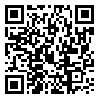Mon, Feb 2, 2026
[Archive]
Volume 8, Issue 17 (2015)
J Med Edu Dev 2015, 8(17): 84-92 |
Back to browse issues page
Download citation:
BibTeX | RIS | EndNote | Medlars | ProCite | Reference Manager | RefWorks
Send citation to:



BibTeX | RIS | EndNote | Medlars | ProCite | Reference Manager | RefWorks
Send citation to:
mirzaei A, palizban F, mozafari M, eivazi A, pakzad I, keikhavani S. Evaluation of curriculum parameters of applied life skills’ course in Ilam UMS . J Med Edu Dev 2015; 8 (17) :84-92
URL: http://edujournal.zums.ac.ir/article-1-360-en.html
URL: http://edujournal.zums.ac.ir/article-1-360-en.html
Alireza Mirzaei, Fatima Palizban, Mseieb Mozafari, Aliashraf Eivazi *, Iraj Pakzad, Satar Keikhavani
Abstract: (27441 Views)
Abstract:
Background and purpose: Life skills are of necessary skills enables health sciences students to deal effectively with the demands and challenges of everyday and future working life. However their formal curriculum lacks this important course. To overcome this defect, an optional course namely “applied life skills” was added to the curriculum by approval of educational council of the university. The current study is going to evaluate some curricular parameters including course necessity, course conceived efficacy, course probable efficacy, content appropriateness, content organization, course administration requirements the same at Ilam UMS, Iran.
Methodology: In a semi-experimental study, a sample of 69 midwifery and medical emergency students through census sampling were studied. Data collection was done by researchers made questionnaire containing 28 questions. Data analysis was performed by using descriptive and analytical procedures including Student’s T Test, to compare results of teaching methods (lecture/ workshop) and also students' educational degree.
Results: The mean of parameters scores assessed (out of 5) were: course necessity 3.6 ±1.19, content appropriateness3.43 ±1.15, content organization3.07 ±1.23, course efficacy understood 3.35 ±1.1, probable course efficacy 3.37 ±1.14, and course administration requirements 3.26 ±1.44 which shows the most and the least acceptability of course necessity and content organization, respectively. Further, workshop method of presentation (56.5%), first or second semester (75%) to provide the course, and formative evaluation gained more scores, compared to others.
Discussion & conclusion: Out of six parameters assessed, five gained at least 3.25(65%) which shows a good acceptability.However, content organization and learning activity planning, simple to hard, got the least score and did not meet students' expectations on the subject, which was predictable due to one year experience of the course that should be overcome in future.
Article Type : Orginal Research |
Subject:
Medical Education
Received: 2014/07/13 | Accepted: 2014/10/19 | Published: 2015/03/17
Received: 2014/07/13 | Accepted: 2014/10/19 | Published: 2015/03/17
| Rights and permissions | |
 |
This work is licensed under a Creative Commons Attribution-NonCommercial 4.0 International License. |



